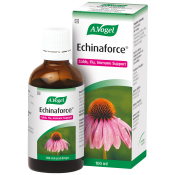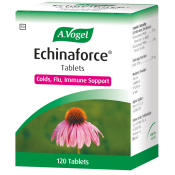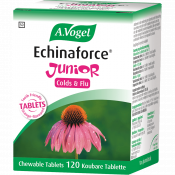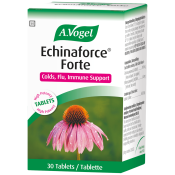Well, firstly, the concept of being able to boost your immune system is scientifically incorrect. If you understand how your immune system functions, you’ll realise the clue is in the word ‘system’. It’s a complex network of various cells, tissues, proteins and organs that together make up the body’s defence system against invading harmful viruses, bacteria and pathogens to prevent illness or disease.
A healthy well-functioning immune system detects these threats, like cold and flu viruses, quickly when they enter the body and triggers a response that involves all the elements in the system to quickly destroy the invading virus or bacteria.
Another common misconception is that many people think the symptoms they get when they are sick are an indication that their immune system is weak. Quite the opposite. That sore throat and runny nose which start quickly when a cold virus tries to enter the cells at the back of your throat are actually a sign that your immune system is functioning well and fighting off the infection quickly before it takes hold.
Signs your immune function may actually be weak are getting frequent infections, slow wound healing, high stress levels and prolonged fatigue.
So, knowing your immune system is a complicated system, when you consider an immune ‘booster’, which element of the system are you intending to ‘boost’? The macrophages? The white blood cells? The tissues in your small intestine which houses about 70% of your immune system? And to what level would you want to ‘boost’ them? Scientists aren’t even able to answer that question.
Even if it were possible to ‘boost’ the function of the immune system simultaneously, that presents another problem. You certainly don’t want a hyper-responsive, over-functioning immune system because that can lead to allergies which are an exaggerated immune response to non-harmful substances, or autoimmune diseases which occur when the immune system mistakes healthy body cells for invading pathogens resulting in the immune attacking our own healthy cells.
To sum up, in real terms, you don’t want to ‘boost’ your immune system or have it working too strongly all the time. You want it balanced and regulated (scientifically known as modulation). So when we say we need an ‘immune booster’, it’s safe to say what we’re really meaning is we want something that supports and promotes a balanced, modulated, immune function and response.
There are easy ways to achieve this balanced immune function before stocking up on a cupboard full of vitamins and supplements. It starts with getting the basics, diet and lifestyle, right, such as:
- Ensuring your diet is high in vegetables and fruits and low in refined and processed foods, sugar and alcohol. Vegetables and fruits especially are high in immune supporting vitamins like A, C, D and minerals, including zinc.
- Getting enough sleep every night (in general 7- 8 hours a night is what most adults need)
- Drinking at least 2 litres of still water daily.
- Exercising regularly and maintaining a healthy weight. Obesity and diabetes can interfere with immune function and weaken it.
- Reducing your stress levels.
- If you notice signs of weak immune function, or you want to ensure you’re supporting your immune function, your first step should be to take stock of your lifestyle and diet and correct any deficiencies there. If you know your stress levels are high, or you’re not getting enough sleep, or you’re older which means your immune function is a little less effective simply by virtue of your age, a clinically proven daily immune support like A.Vogel’s Echinaforce will give you the extra support you need.
Echinaforce has been clinically proven to help modulate and support the immune function, without ever overstimulating it. This was demonstrated in a clinical trial through Scotland’s University of St Andrews. While participants were given Echinaforce daily, their immune blood markers were studied before and after the Echinaforce was taken. And interestingly, on days participant’s immune function was low, Echinaforce helped to bring the levels up. But on days their immune function was perfectly fine, the Echinaforce had no effect. It was as if the participants’ immune systems used it if they needed it but ignored it if they didn’t.
Another study in 755 participants showed that Echinaforce was safe for long term use and helps to improve resistance to colds and respiratory tract infections. If you should get ill, Echinaforce also relieves the severity of symptoms and shortens the duration of your illness.
Made in Switzerland from organically grown Echinacea purpurea plants Echinaforce is available in liquid, tablets and a tasty chewable Junior variant. It’s also safe during pregnancy and breastfeeding.
References:
- Ritchie, M.R., et al., Effects of Echinaforce® treatment on ex vivo-stimulated blood cells. Phytomedicine, 2011. 18(10): p. 826-831.
- Jawad, M., et al., Safety and Efficacy Profile of Echinacea purpurea to Prevent Common Cold Episodes: A Randomized, Double-Blind, Placebo-Controlled Trial. Evidence-Based Complementary and Alternative Medicine, 2012. 2012: p. 7.



